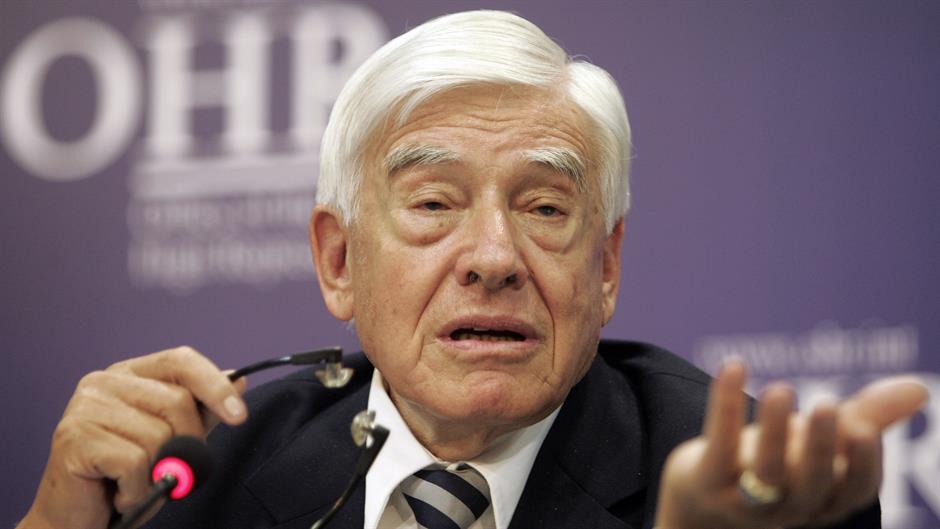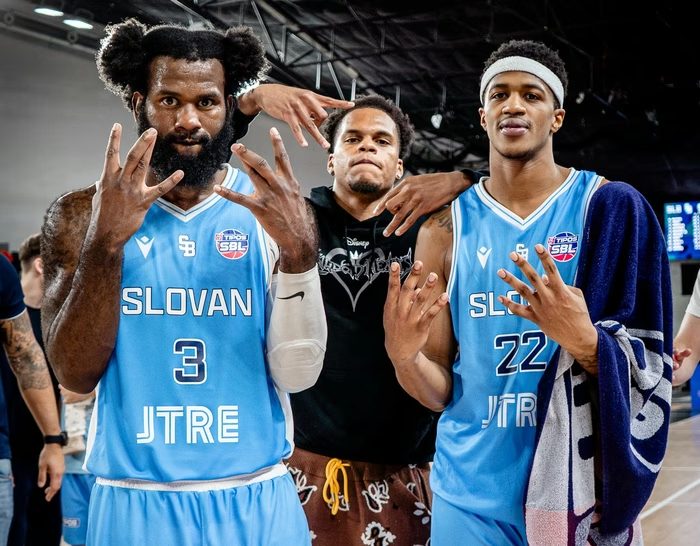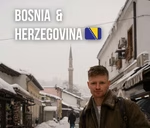'Real reason for Croat inequality claim is the election loss of HDZ candidate'

The real reason for the Croat uproar over Bosnia’s Election Law is not the unequal position of Bosnian Croats in the country, but the fact that the candidate from a certain political party has not been elected to the presidency, former top international official who oversaw the implementation of the peace agreement in Bosnia, Christian Schwarz-Schilling, told Radio Free Europe.
He said the situation in Bosnia now reminds of the 1990s, warning that it is high time for the international community and the current High Representative to act.
The High Representative is appointed by the international community to monitor the civilian implementation of the Dayton Peace Agreement, which ended the 1992-1995 war in Bosnia.
Schwarz-Schilling is one of the three former High Representatives who have sent a letter to EU top officials recently in which they expressed concern over Croatia’s claim that the newly elected Croat member of Bosnia’s tripartite Presidency, left-leaning Zeljko Komsic, is not a legitimate representative of the ethnic group because he won thanks to Bosniak votes, while the numerically inferior Croats in Bosnia had voted for another candidate to represent them.
EU member Croatia has been lobbying intensively in Brussels asking the EU to force Bosnia to change its election law and allow each of the three groups living there to elect their own representatives.
The ruling party in Croatia is currently the Croatian Democratic Union (HDZ), and it has a sister party in Bosnia. The leader of Bosnia’s HDZ, Dragan Covic, was defeated by Komsic.
Along with Paddy Ashdown and Carl Bildt, Schwarz-Schilling demanded in the letter that Croatia stops “meddling in the internal affairs” in Bosnia.
“It is very clear that the latest moves of Mr Dragan Covic and the HDZ in Bosnia and Herzegovina, as well as the Croatian government, Prime Minister and MPs in the Croatian Parliament, are trying to create a false narrative on the issue of elections in Bosnia,” Schwarz-Schilling said.
The former High Representative said that the basis on which Croatian and Bosnian Croat officials demand Bosnia’s Election Law to be changed has nothing to do with the election process for Bosnia’s Presidency.
In December 2016, Bosnia’s Constitutional Court ruled partially in favour of a complaint lodged by former HDZ politician Bozo Ljubic. At issue was the state election law provision dictating that the ten cantons in the Federation (FBiH), the Bosniak-Croat semi-autonomous entity within the country, delegate at least one representative from each of the country’s three main ethnic groups to the FBiH House of Peoples.
Ljubic argued that the Croat influence in cantons with majority Bosniak populations was unfairly diminished in the selection of delegates. He argued that Croat candidates, therefore, should be elected only out of majority Croat cantons, thereby ensuring that only Croats vote for Croat delegates.
The Court ruled that Bosnia’s Election Law must be amended and erased the parts of the law which it deemed unconstitutional.
Croatia and Bosnian Croats have been using the ruling to suppoert their reasoning in protesting Komsic’s election to the Presidency.
“That is why, they believe, the law should be changed, and they appealed to the EU Ministers of Foreign Affairs to put this issue on the agenda, saying that the EU ministers should change the law,” Schwarz-Schilling explained, adding that “this is a false narrative.”
“They tried to make this the first priority. Covic even threatened with no government formation before changes are made to the law,” he pointed out.
“I felt a great danger - that the foreign ministers were not familiar enough with this law and the fact that Mr Covic was not elected, while he was elected twice according to the same law before, and now he wants to change it. Why? Because he was not elected,” Schwarz-Schilling explained, adding that “that's the only difference.”
It is due time to clarify what is going on, he said, because if you are not aware of what is happening, “a dictatorship is also possible.”
“I contacted Bosnia’s former High Representatives, Paddy Ashdown and Carl Bildt, and we had the same opinion on what is going on,” he said.
The Croatian Parliament is currently discussing the status of Bosnian Croats in Bosnia, and an idea of creating a third, Croat-dominated entity within the Bosnia has come up. Such a move would go against the 1995 peace agreement, the former High Representative pointed out.
Nevertheless, according to Schwarz-Schilling, the establishment of such an entity has sometimes been a hidden, and sometimes a publicly stated final goal of Croatian and Bosnian Croat officials.
“This is totally against Dayton and it is not possible,” he said.
The goal of a third entity was not openly advocated until now, “but there were hints, saying that Croats are endangered, second-grade citizens, and so on. That is not true,” he said.
Croats are not endangered in Bosnia, Schwarz-Schilling argued, adding that they “even have more favourable circumstances than the other two constitutional peoples” there.
He offered the position of Serbs living in the Croat-majority city of Mostar as an example, saying they are not equal in that city.
Bosniaks, he said, face more poverty and do not have a second passport enabling them to travel.
It is high time for the Croatian Parliament to discuss the situation Bosnian Croats are in, he said, as the issue has not been tended to until now.
“Former Croatian President Stjepan Mesic is of the same opinion as stated in our letter,” he said.
He mentioned the Serb member of the Presidency, Milorad Dodik, who has been advocating for the secession of the Bosnian Serb semi-autonomous entity in the country, Republika Srpska (RS).
His party, the Alliance for Independent Social Democrats (SNSD), has formed an alliance with Covic and the HDZ recently.
Schwarz-Schilling explained what he thinks the background of that alliance is.
“The real deal is: they want a third entity, and I want an entity independent from the state, and we can strike a deal. And he (Dodik) supports this situation,” Schwarz-Schilling said.
Kakvo je tvoje mišljenje o ovome?
Učestvuj u diskusiji ili pročitaj komentare





 Srbija
Srbija
 Hrvatska
Hrvatska
 Slovenija
Slovenija



























































